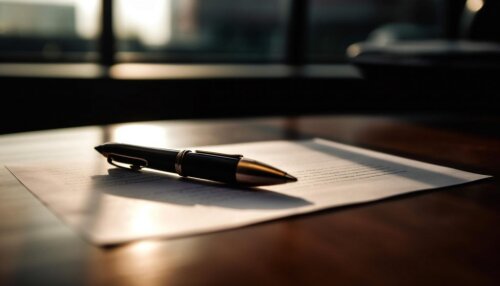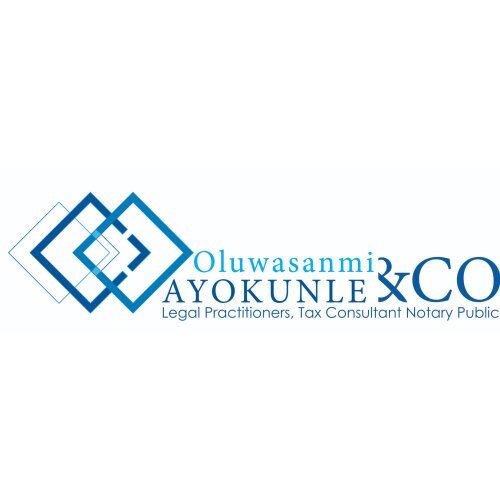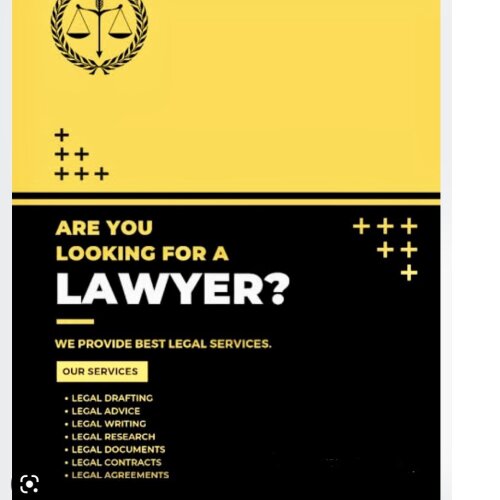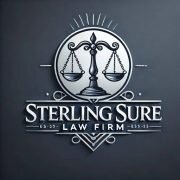Best Construction Accident Lawyers in Nigeria
Share your needs with us, get contacted by law firms.
Free. Takes 2 min.
Or refine your search by selecting a city:
List of the best lawyers in Nigeria
About Construction Accident Law in Nigeria
Construction accident law in Nigeria encompasses the legal framework that addresses injuries or damages arising from construction activities. Due to rapid urbanization and infrastructure development, the construction industry in Nigeria is booming, leading to a heightened risk of accidents. Construction accidents can involve falls, equipment malfunctions, electrocutions, and more. The primary goal of construction accident law is to provide legal support and avenues for individuals to seek compensation for injuries sustained in such mishaps. The law aims to hold responsible parties accountable and ensure that safety regulations are adhered to on construction sites.
Why You May Need a Lawyer
Legal expertise may be crucial in several situations involving construction accidents in Nigeria:
- Injury Compensation: If you've been injured on a construction site, a lawyer can help you seek compensation for medical expenses, lost wages, and other related costs.
- Employer Negligence: You may need legal help if an employer's negligence in maintaining safety standards led to an accident.
- Insurance Claims Disputes: Lawyers can facilitate discussions with insurance companies to ensure fair compensation for construction accident claims.
- Wrongful Death: In the unfortunate event of a construction-related fatality, legal assistance may be needed for filing a wrongful death claim.
- Third-party Liability: Claims against manufacturers or suppliers of faulty construction equipment may require legal intervention.
Local Laws Overview
Several local laws and regulations are relevant to construction accidents in Nigeria:
- Factories Act: This law outlines the health and safety standards required at workplaces, including construction sites.
- Employees’ Compensation Act: This act provides a social insurance scheme for employees who sustain injuries in the course of their employment.
- National Building Code: Establishes the standards for building design and construction to promote safety.
- Labour Act: Governs employer-employee relationships, stipulating employee rights including safe working conditions.
Frequently Asked Questions
What steps should I take immediately following a construction accident?
Ensure you receive medical attention, report the accident to your employer, document the scene if possible, and gather contact details of any witnesses.
Who is liable in a construction accident?
Liability can extend to employers, contractors, subcontractors, or equipment manufacturers, depending on the nature and cause of the accident.
Can I file a claim if I was a subcontractor?
Yes, subcontractors can also file claims for injuries sustained due to negligence or unsafe working conditions on a construction site.
How long does a construction accident claim take?
The duration can vary based on case complexity, cooperation from all parties, and the court's schedule, typically ranging from several months to a few years.
What types of compensation can I receive?
You may be entitled to compensation for medical bills, lost wages, disability, and pain and suffering, among others.
Do I need evidence to support my claim?
Yes, evidence such as medical records, accident reports, photos, and witness statements can significantly support your claim.
How do I choose a lawyer experienced in construction accidents?
Look for lawyers with a proven track record in construction accident cases, good client reviews, and experience with local construction laws.
What if my employer threatens to terminate my employment?
Legally, employees are protected from retaliation for filing a claim. Consult a lawyer if facing such threats.
Are there time limits for filing a construction accident claim?
Yes, there are statutory time limits. It's best to consult with a lawyer as soon as possible to ensure your claims are timely.
Can I settle my claim out of court?
Yes, many construction accident claims are resolved through settlements, which can be negotiated with the help of a lawyer.
Additional Resources
For further assistance, you can explore the following resources:
- The Federal Ministry of Labour and Employment for labor guidelines.
- The National Council on Occupational Safety and Health for safety standards.
- The Nigerian Bar Association for finding qualified legal representation.
- The Society of Construction Law Nigeria for industry-specific insights.
Next Steps
If you need legal assistance with a construction accident claim, consider taking the following steps:
- Consult a Lawyer: Engage a lawyer specializing in construction accidents to evaluate your case.
- Gather Evidence: Collect all relevant evidence, including medical reports, witness statements, and accident documentation.
- File Your Claim: Work with your lawyer to file a compensation claim within the statutory time limits.
- Follow Legal Advice: Adhere to your lawyer's guidance throughout the process to enhance your chances of a successful outcome.
Lawzana helps you find the best lawyers and law firms in Nigeria through a curated and pre-screened list of qualified legal professionals. Our platform offers rankings and detailed profiles of attorneys and law firms, allowing you to compare based on practice areas, including Construction Accident, experience, and client feedback.
Each profile includes a description of the firm's areas of practice, client reviews, team members and partners, year of establishment, spoken languages, office locations, contact information, social media presence, and any published articles or resources. Most firms on our platform speak English and are experienced in both local and international legal matters.
Get a quote from top-rated law firms in Nigeria — quickly, securely, and without unnecessary hassle.
Disclaimer:
The information provided on this page is for general informational purposes only and does not constitute legal advice. While we strive to ensure the accuracy and relevance of the content, legal information may change over time, and interpretations of the law can vary. You should always consult with a qualified legal professional for advice specific to your situation.
We disclaim all liability for actions taken or not taken based on the content of this page. If you believe any information is incorrect or outdated, please contact us, and we will review and update it where appropriate.
Browse construction accident law firms by city in Nigeria
Refine your search by selecting a city.















